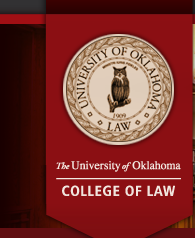Document Type
Article
Publication Date
2011
Publication Title
Delaware Journal of Corporate Law
Abstract
Corporations are ubiquitous in modern society. They pervade every aspect of our life, consumer, professional, investment activity. Probably, people have more contact with corporations on a daily basis than any other institution, including government. From the South Sea Bubble to the Stock market Crash of 1929 to Enron to General Motors and Countrywide Mortgage, corporate scandals and controversies invite fundamental questions about corporate law. This article attempts to bring a fresh perspective to the question: “what is a corporation and how should the law treat it?” The article articulates a corporate metaphysics rooted in political philosophy. The dominant models of corporate law and philosophy are rooted in the realm of private law, especially contract, agency and property law. Corporations are viewed as a nexus of contracts or as vehicles for joint ownership of a pool of economic assets. Conceptualizing of corporate law as an area of law facilitating private ordering has led to the entrenchment of the principle of shareholder wealth maximization. Corporations exist to maximize shareholder wealth. This conception affects the philosophy underpinning the system of corporate law. Although some commentators and policy makers have argued for some attention to the interests of other stakeholders or constituencies of a corporation, their arguments are still couched primarily within the hermeneutic of private law, albeit somewhat modified by their concern for particular groups or stakeholders. Placing corporate law within a political venue, however, allows corporate law to ask more fundamental questions such as what is the purpose of a corporation within the larger society? How should its organization be structured? What claims should its authorities have over other members of the corporation? What are the roles and responsibilities of authority figures in a political community? As created corporations are a legal entity “separate from the flesh and blood people who were its owners and managers.” This leaves the question is the corporation “essentially a private association subject to the laws of the state but with no greater obligation than making money, or a public one which is supposed to act in the public interest.” Based on Aristotelian political philosophy, this article constructs a theory of corporations as political entities. In this light corporate law is really a form of public law, not private ordering. Corporations are in the language of Aristotelian philosophy, imperfect communities which are one of several constituent parts of a perfect community, the civil polity. The end of Corporations, production of certain economic goods, is an imperfect end. Corporations also lack internally all the means to achieve their end and are dependent on the rest of civil society to attain it. Several implications flow from this vision. Those who command authority within the corporate community have obligations to the larger perfect community as well as to all the members of the corporate community. The imperfect ends of corporations must be harmonized to the common good of the civil society. Those exercising political authority within the imperfect community have the obligation to exercise that authority for the common good of the corporation, not just the individual good of any one member, be that managers, directors, shareholders, creditors, suppliers, customers or employees. The article concludes by observing that although this vision of the corporation differs from much of the commentary on corporate metaphysics, corporate law and many corporate practices are actually more consistent with this vision of the corporation as an imperfect society committed to the common good than the shareholder wealth maximization standard. The philosophy of corporate law should be realigned to take account of this reality.
Volume
36
First Page
509
Recommended Citation
Brian M. McCall, The Corporation As Imperfect Society, 36 Del. J. Corp. L. 509 (2011).
